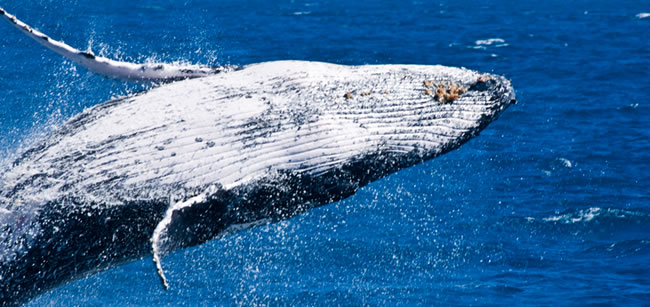Be whale aware while on the water
Thursday 2 June 2011
Be whale aware while on the water
May is the month when we have the first sightings of migrating humpback whales off Queensland's east coast, and the Great Barrier Reef Marine Park Authority (GBRMPA) is reminding vessel operators to be whale aware while on the water. They should take care, watch out for whales and know the correct approach distances.
GBRMPA's Director of Ecosystem, Conservation and Sustainable Use, Mark Read, said it was important to abide by approach distances for both the safety of whales and onlookers. Dr Read said whales can be social animals and may voluntarily approach boats or people in the water, but it was important not to approach them.
Legally, vessels must stay at least 100 metres away from whales in the Marine Park. Jet skis must stay at least 300 metres away from whales throughout the Marine Park.
From May until September each year, migrating humpback whales can be seen in the Great Barrier Reef Marine Park. Having left the colder southern oceans they undertake an annual migration to warmer northern waters, where they court, mate, give birth or rear their young.
"The best whale watching experience is when whales are given the space to exhibit normal behaviours without interference from people," Dr Reid said. “Whale watching regulations are in place to ensure whale watchers are kept safe and whales are not harassed or disturbed.
“We must not forget that these are large and powerful animals; an adult humpback is anything between 12 to 15 metres long and can weigh up to 40 tonnes. The regulations are there to make sure these majestic animals go about their usual activities safely.
"A whale that is disturbed is less likely to spend time at the surface; so whale watchers may not get the best from the experience. Disturbing a mother and its calf can cause the calf to stop feeding and move away from its mother which is a situation that must be avoided. Separating a mother and calf can also be dangerous, especially if the mother feels her calf is being threatened in any way."
GBRMPA have urged people who encounter a sick, injured, stranded or dead whale take as many details as possible and report it to 1300 130 372.
Photos by Daryl (surname not supplied)

